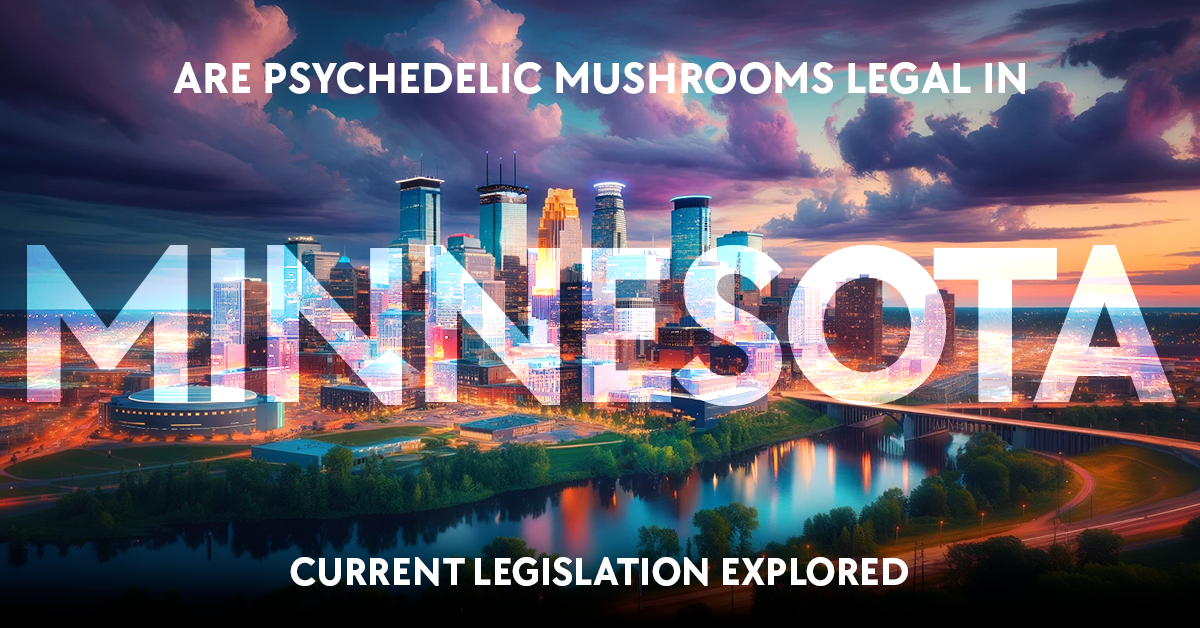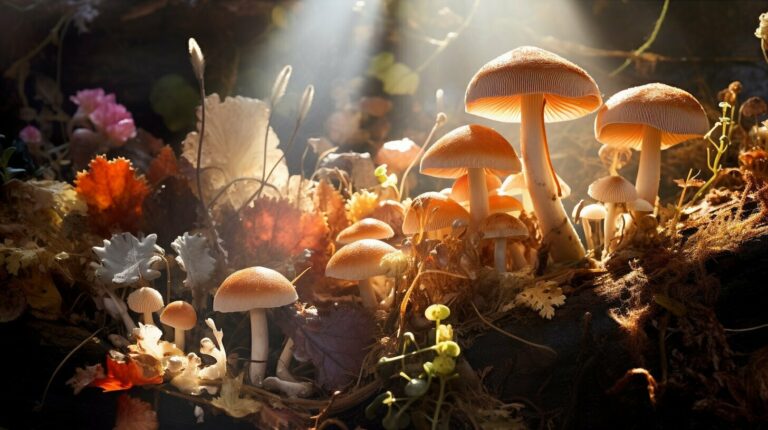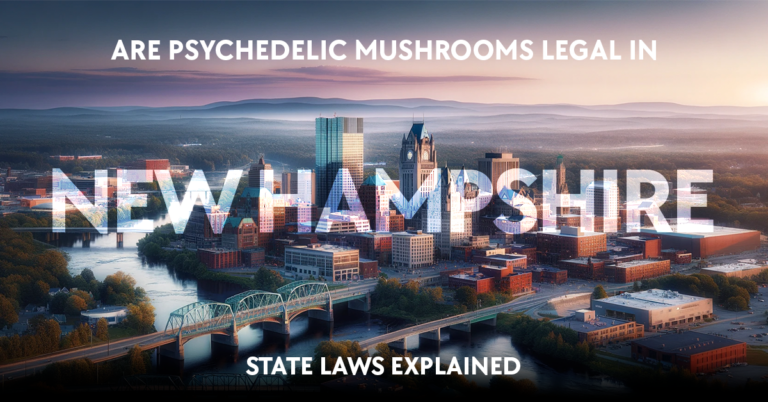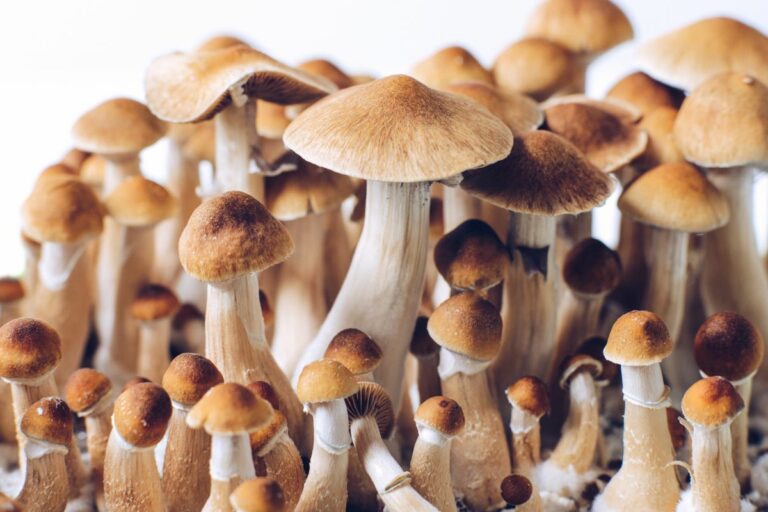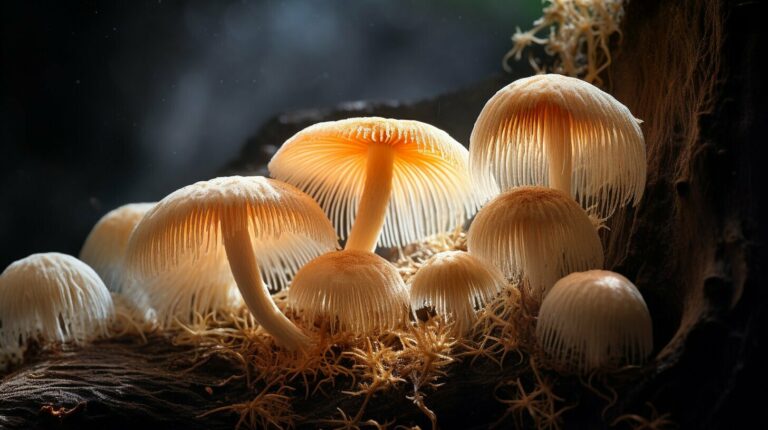In the state of Minnesota, the legality of psychedelic mushrooms, specifically those containing psilocybin, is clear-cut: they are illegal. Classified as a Schedule I controlled substance, psychedelic mushrooms are deemed to have a high potential for abuse and no accepted medical use despite ongoing research into their therapeutic potentials. Possession, sale, or cultivation of these mushrooms can lead to significant legal consequences, including hefty fines and incarceration.

However, there’s a growing discussion around the potential medical benefits of psilocybin, the psychoactive compound in these mushrooms. While legalizing marijuana, psilocybin mushrooms, and MDMA for medical use remains a contentious topic, shifts in public opinion and legislative approaches are observable across the country. Minneapolis and St. Paul have not been immune to these discussions, often reflecting the broader national debate on decriminalization and medical research.
Your understanding of the intricate legal landscape regarding psychedelic mushrooms in Minnesota is crucial, especially as law enforcement agencies have reported increased encounters with these substances. With ongoing legal debates and scientific research, staying informed is necessary to navigate the complexities surrounding the psychedelic mushrooms’ legal status.
Current Legal Status in Minnesota
Table of Contents
https://www.youtube.com/watch?v=zqfLVIWYnyQ&embed=true
In Minnesota, the law classifies psilocybin mushrooms as a Schedule I controlled substance. This categorization means that they are considered to have a high potential for abuse and are not accepted for medical use.
State Laws and Penalties
Under Minnesota state law, the possession, sale, or distribution of psilocybin mushrooms is illegal and could lead to severe penalties. If you are found with these substances, the consequences can range from fines to imprisonment, depending on the amount in possession and intent (personal use or distribution). Being caught with a small amount for personal use might result in a misdemeanor, but having larger quantities or selling can lead to felony charges.
Minneapolis Decriminalization Effort
In Minneapolis, there have been efforts to decriminalize psilocybin mushrooms, reflecting a shift in perspectives towards drug policy. While Mayor Jacob Frey has not officially decriminalized psilocybin, there is a growing conversation within the municipality about its potential therapeutic benefits and the reallocation of law enforcement resources. Decriminalization efforts could mean that if you’re in Minneapolis, law enforcement might not prioritize pursuing cases involving small amounts of psilocybin mushrooms. However, it remains crucial to remember that despite any local efforts, psilocybin mushrooms are still illegal under the state and federal laws.
Psychedelic Substances Under Federal Law

In the United States, the legal framework regarding psychedelic substances is primarily determined by federal law. The classification and regulatory oversight of these compounds are handled by agencies like the DEA and FDA.
Federal Classification
Psychedelic substances, including various psilocybin-containing mushrooms, are classified under Schedule I of the Controlled Substances Act (CSA). A Schedule I substance is characterized by having a high potential for abuse, no currently accepted medical use in treatment in the United States, and a lack of accepted safety for use under medical supervision. This classification means that, under federal law, the production, distribution, and possession of psychedelic substances are illegal, subjecting these actions to strict regulatory oversight by the Drug Enforcement Administration (DEA).
FDA Position on Psychedelic Compounds
Despite the DEA’s stringent classification, the Food and Drug Administration (FDA) has recognized the potential therapeutic benefits of some psychedelic compounds. For example, the FDA has granted the designation of breakthrough therapy to certain treatments involving psilocybin, which suggests that preliminary clinical evidence indicates the drug may offer substantial improvement over existing therapies for severe conditions. This designation can expedite the development and review of drugs intended to treat serious or life-threatening diseases. However, it’s important to understand that while the FDA can facilitate research and development of psychedelic-based treatments, it cannot alone change their legal status. Legalizing psychedelic drugs for medical or recreational use would require legislative changes at the federal level.
Medical Use and Research in Minnesota

In Minnesota, the interest in psychedelic mushrooms, particularly for medical use and research, is on the rise. Evidence suggests potential benefits for mental health conditions, leading to a cautious but growing engagement with psilocybin therapy.
Current Research on Psychedelics
Psychedelic research in Minnesota echoes national trends focusing on substances like psilocybin as potential treatments for various mental health conditions. While psilocybin mushrooms remain illegal under federal law, clinical trials and scientific inquiries are underway. For instance, efforts similar to those outlined in the Cambridge University study are examining the once-abandoned research on psychedelics. With the FDA designating psilocybin as a breakthrough therapy for depression, researchers are carefully assessing its efficacy and safety in controlled environments.
Psilocybin Therapy for Mental Health Conditions
Minnesota recognizes the promising implications of psilocybin therapy, mostly for disorders like PTSD, depression, and anxiety. As suggested in the digital commons article, the medical debate includes not only marijuana but extends to researching psychedelics like psilocybin mushrooms. Notably, institutions such as the University of Minnesota have been mentioned as equal-opportunity educators, possibly reflecting a commitment to exploring psychedelic medicine within legal and ethical boundaries. Although statewide legalization for medicinal use has not occurred, these initiatives indicate a shift towards acceptance and curiosity regarding the therapeutic properties of psychedelics for mental health conditions.
Psychedelic Medicine Task Force and Legal Reform Efforts

In Minnesota, recent initiatives focus on the therapeutic potential of psychedelic substances, prompting both the establishment of a task force and a reconsideration of current laws.
Minnesota’s Approach
Your state has recognized the need to evaluate the benefits of psychedelic substances for mental health treatment. The Psychedelic Medicine Task Force, established by lawmakers, is examining policy issues surrounding the therapeutic use of substances like psilocybin and MDMA, particularly for veterans suffering from PTSD and other trauma-related conditions. This task force is central to efforts to reform state policies and align them with current medical and scientific understanding.
National Legalization Movements
As you look beyond Minnesota, there’s a broader movement taking shape. Various states are pursuing legalization or decriminalization measures for psychedelic substances, reflecting a shift towards evidence-based drug policy reform. This national trend influences local legislative considerations, as policymakers watch closely the outcomes from places that have already made policy changes related to psychedelic medicine. Your understanding of Minnesota’s legislative progress is enhanced by considering these national legalization movements, which provide context and possible frameworks for local reform efforts.
Potential Benefits and Risks of Psychedelic Mushrooms
Psychedelic mushrooms, which contain the compound psilocybin, have been subject to research due to their potential therapeutic benefits for certain mental health conditions. However, along with the benefits, there are public health considerations, such as risks and possible addiction, that you must be aware of.
Therapeutic Potential
Research indicates that psychedelics like psilocybin could be beneficial in therapy for various mental health conditions. Clinical studies suggest that, under controlled settings, psychedelic mushrooms may have the capacity to alleviate symptoms of depression, anxiety, and PTSD. For instance, a study found in Harm Reduction Journal elaborates on the ethical and legal issues in psychedelic harm reduction and integration therapy, spotlighting the importance of dosage and setting for beneficial outcomes. Still, therapeutic use remains strictly regulated, and psilocybin mushrooms remain illegal outside sanctioned medical research in many places, including Minnesota.
Public Health Considerations
From a public health perspective, the use of psychedelic mushrooms is not without its risks. It’s important to understand that psychedelics may lead to challenging experiences, which can include fear, panic, or paranoia. According to the “Challenging Experience Questionnaire” study, these risks are real and well-documented. Additionally, while the potential for addiction to psychedelic mushrooms is typically low, it is crucial to note that they are classified as a Schedule I substance under the Controlled Substances Act due to high potential for abuse and no currently accepted medical use in treatment in the United States.
Psychedelic Use in Cultural and Historical Context
As you explore the complex relationship humans have with entheogenic plants, it’s essential to recognize how traditional uses have paved the way for natural psychedelics within various cultures. These practices have influenced the modern cultural impact and are significant to the history of psychedelics.
Traditional Uses
Psychedelic mushrooms, known for containing psilocybin, have a rich history in numerous cultures. For example, the indigenous peoples of Mesoamerica have used these substances in religious ceremonies for centuries. This use highlights a profound respect and knowledge of natural psychedelics as tools for spiritual exploration and healing. Such practices are well documented among the Mazatec people of Mexico, where mushrooms like Psilocybe mexicana play a crucial role in their spiritual rituals.
Modern Cultural Impact
The 1960s counterculture movement in the United States catapulted psychedelic mushrooms from hidden traditional practices into the public eye. This era marked a significant shift as these substances became symbols of rebellion, self-discovery, and alternative lifestyles. Seminal events, like the Summer of Love, and influential figures, such as Timothy Leary, advocated for the psychological benefits of psychedelics, affecting cultural attitudes and sparking scientific curiosity. Despite the resultant legislation making psychedelics illegal in the late 1960s, these substances have continued to influence art, music, and the ongoing conversation about mental health therapy.
The Future of Psychedelic Policy in Minnesota
Your understanding of psychedelic policy in Minnesota’s future is essential. Here, you’ll explore what may come to pass in terms of legislation, societal shifts, and public sentiment.
Policy Predictions
In Minnesota, predicting policy changes can be intricate. Yet, considering the current trends, decriminalization could be on the horizon. Influences from successful policy changes in other states may encourage local Minnesota legislators, particularly those affiliated with the Democratic-Farmer-Labor (DFL) Party, to consider similar paths. Your watchful eye should note any proposed bills aiming to change the legal status of psychedelic mushrooms in the legislative sessions ahead.
Impact on Law Enforcement and Society
With potential policy shifts, your attention must turn to law enforcement and societal impacts. Decriminalization could lead to priority shifts in law enforcement, potentially reducing the policing of psychedelic mushroom possession. Society might experience changes too, such as shifts in public health approaches and possibly an established framework for the responsible use of psychedelics.
Advocacy and Public Opinion
Your perspective on the role of public opinion in shaping the future cannot be understated. Advocacy groups could influence legislation significantly, as public campaigns and educational efforts are integral in swaying opinion. As you witness growing dialogues around mental health and alternative therapies, the support for decriminalizing psychedelics may gain traction, reflecting a more permissive public opinion towards psychedelic mushrooms.
Frequently Asked Questions
Before diving into the specifics, it’s important for you to understand the current legal environment surrounding psilocybin mushrooms in Minnesota.
What is the legal status of psilocybin mushrooms in Minnesota?
Psilocybin mushrooms are classified as a Schedule I controlled substance in Minnesota, making possession, sale, and distribution illegal under state law.
Can individuals possess psilocybin mushrooms for personal use in Minnesota without facing legal penalties?
No, you cannot legally possess psilocybin mushrooms for personal use in Minnesota. Doing so could result in legal penalties.
Are there any medical or therapeutic exceptions for the use of psychedelic mushrooms in Minnesota law?
Minnesota law does not currently recognize any medical or therapeutic exceptions that allow the use of psychedelic mushrooms.
Has there been any recent legislation in Minnesota regarding the decriminalization or legalization of psilocybin mushrooms?
As of the current knowledge, no recent legislation has been passed in Minnesota that decriminalizes or legalizes psilocybin mushrooms.
Under which circumstances could someone be prosecuted for possession or distribution of psilocybin mushrooms in Minnesota?
Prosecution could occur under any instance of possession or distribution of psilocybin mushrooms, as they are illegal substances in Minnesota.
Are there any active efforts or discussions about changing the legal status of psychedelic mushrooms in Minnesota?
While there are conversations and efforts in various parts of the United States concerning the status of psychedelic mushrooms, specific movements in Minnesota may be less prominent.

